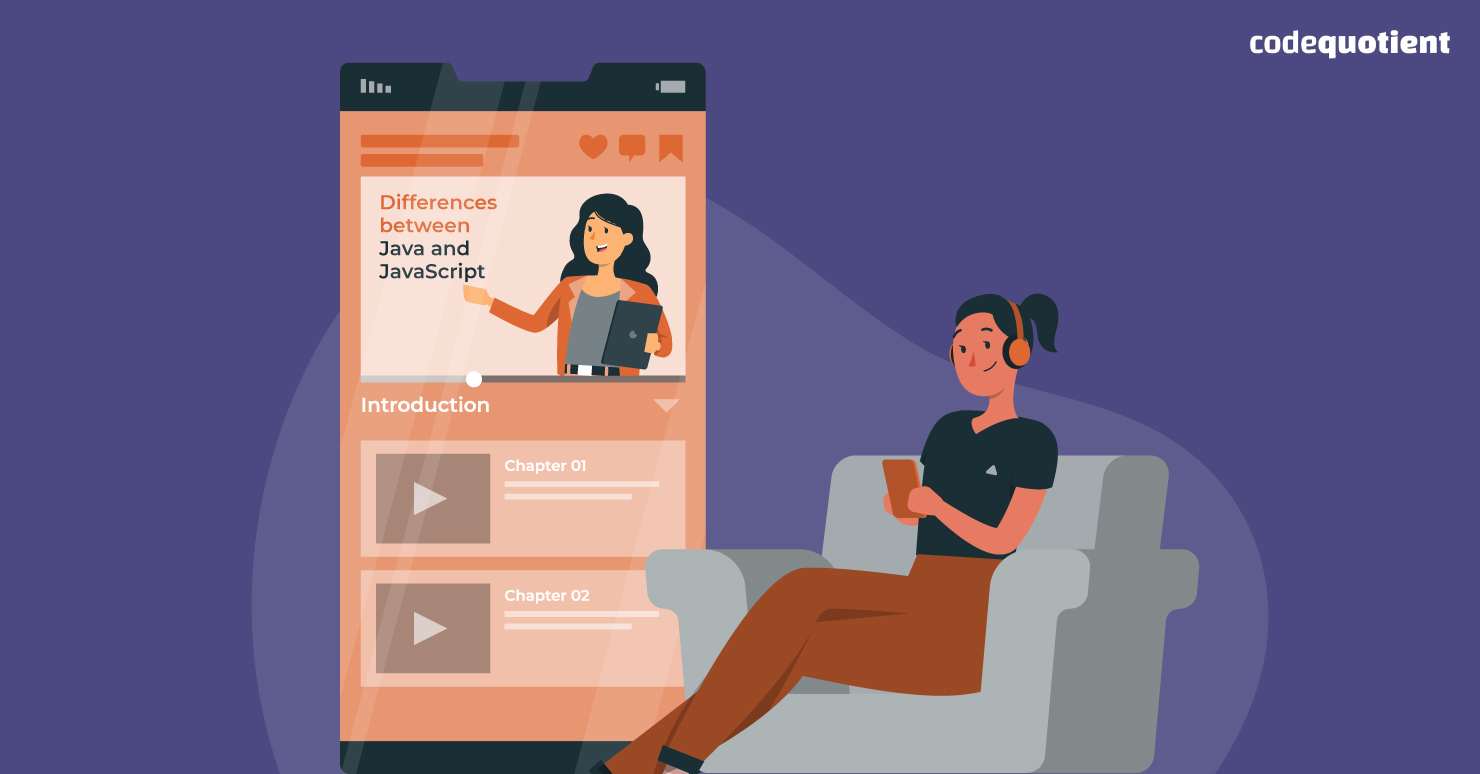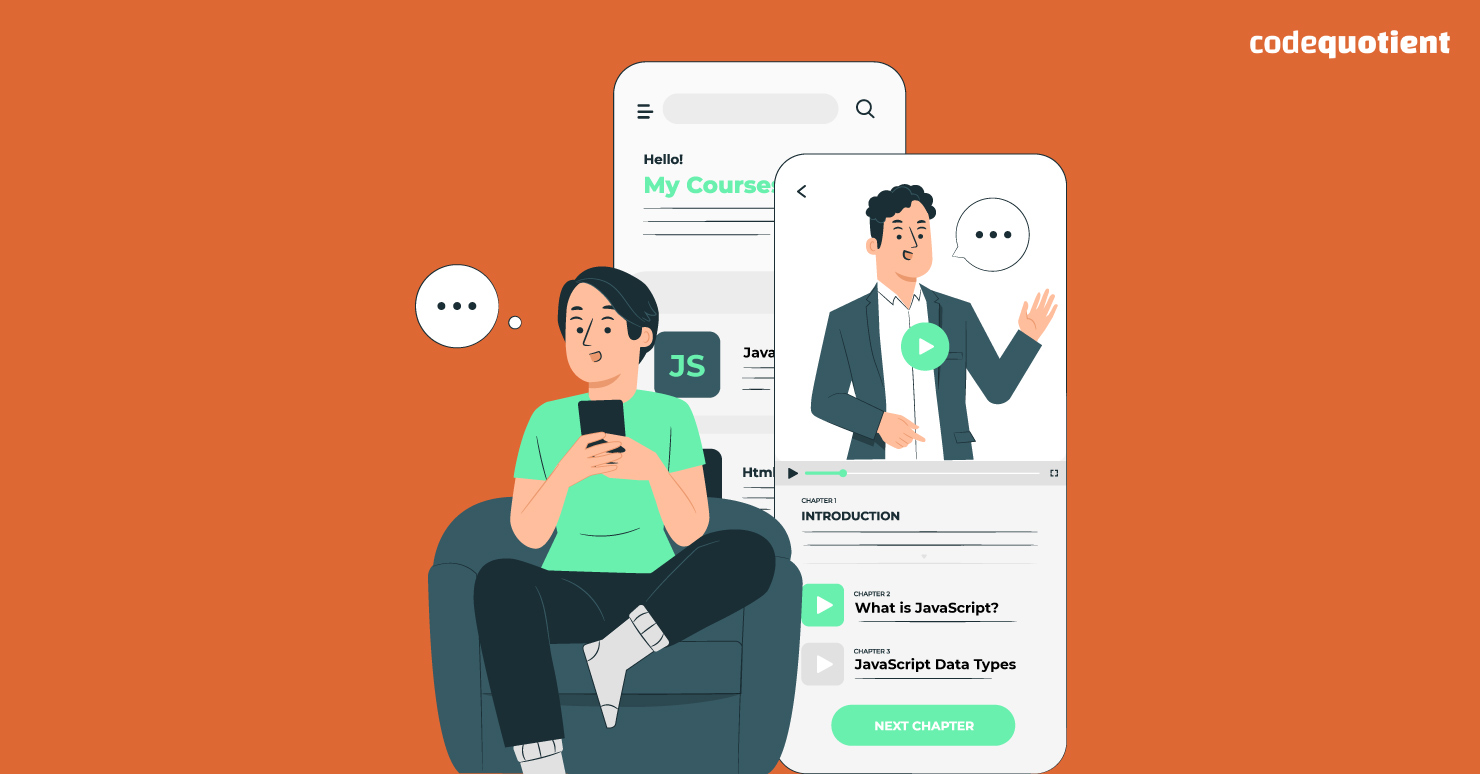JavaScript is one of the world’s most popular programming languages. According to a survey conducted by StackOverflow, an overwhelming 69% of the 90,000+ developers, who participated in the poll, said that Javascript is the most used skill in their programming duties. It’s a staple skill for developers in many fields such as Website Development, Game Development, App development, etc.
There are over 1.6 billion websites worldwide, and 98% use JavaScript. So the chances of any software developer not using JavaScript at some point in their career are very low. However, to solve complex programming challenges in their career, they will have to depend on either Vanilla JavaScript or a flavor of JavaScript such as ES6 or TypeScript for developing a website, game, operating system, or app.
JavaScript Learning Options
Given JavaScript’s enormous popularity, it makes sense for any beginning programmer to pick up the language as one of their first programming skills. But in today’s digital age, there are several options available online for any discipline’s learners to select from. We will break down some of the best available options for you.

1. Self-Learning JavaScript Courses
In the vast repository of knowledge we call the Internet, there is undoubtedly enough information for anyone to begin their learning journey and become an expert. Provided you have enough self-discipline, curiosity, and motivation to plan a learning path and stick to it, you can find free JavaScript courses on YouTube or paid courses on learning sites like LinkedIn Learning, Udemy, and Coursera.
A self-learning JavaScript course is self-paced with no deadline. You get complete freedom to consume, learn and practice as much as you want and whenever you want. However, most learners who are not committed fall into the trap of complacency and passivity.
Eventually, they give up on such courses mid-way and end up with no real benefit.
Those who complete any paid JavaScript course from leading learning platforms are rewarded with industry-recognized certificates. These certificates can be added to their resumes to make their profiles stand out.
Related blog: Who can become a SuperCoder? Click here to find out!
2. Coding Bootcamps
For learners who lack self-discipline, coding bootcamps can be a better option to learn fast. Such bootcamps are the latest trend in learning programming with a military-like approach. It presents a rigorous but hard-to-fail test of patience, with verifiable JavaScript coding skills and individually-developed projects. The durations range from weeks to months. Unlike a self-learning JavaScript course, the idea is to start with the basics and quickly move on to more advanced concepts with hands-on learning.
Learners are given projects to complete using the JavaScript principles they routinely study in class as homework assignments. This improves their comprehension of the ideas and helps expand their knowledge of more complex concepts. They repeat the process until they feel confident enough to take on a significant project independently.
Curious about the salaries of Software Developers? Want to know how much you can earn as a Java programmer? Click here to find out.
3. Textbooks
Even as the digital trumps the analog, this classic learning method will never go out of style for those who prefer it. While there are several textbooks out there by developers, industry professionals, and professors of JavaScript, here are some notable mentions to help you get started on your learning journey:
JavaScript for Kids- Nick Morgan
Don’t be misled by the title. Although Nick Morgan’s writing is humorous and geared toward young readers, adult learners can still benefit from its straightforward and simple concepts. This work provides concise summaries of the fundamental concepts of strings, arrays, and loops, as well as more in-depth analyses of jQuery and visual design. Additionally, it offers detailed instructions on how to create simple games.
You Don’t Know JS: Up & Going- Kyle Simpson
This book is not intended for complete beginners. They could benefit from it, but it isn’t only for novices. Here’s a quote from the book –
“It’s easy to learn parts of JavaScript, but much harder to learn it completely — or even sufficiently — whether you’re new to the language or have used it for years. With the ‘You Don’t Know JS’ book series, you’ll get a complete understanding of JavaScript, including trickier parts of the language that many experienced JavaScript programmers simply avoid.”
The technical ins and outs of JavaScript, the “basic building blocks of programming”, along with the fundamentals of JavaScript are covered thoroughly in this book.
Eloquent JavaScript: A Modern Introduction to Programming- Marjin Haverbeke
This material offers background information and context for people with limited prior knowledge of JavaScript. The book aims to instruct readers on “how to develop beautiful, efficient code.” The lectures in Haverbeke focus on the fundamentals of programming, including subjects like grammar, control, data, and functional programming approaches.
Bottomline
While these are a few different ways you can begin learning JavaScript, the best way to learn depends on the medium you are most comfortable with.
CodeQuotient offers a robust, flagship SuperCoders Program which is a three-month online, ‘full-stack development’ course. It focuses on in-depth, project-based learning to unlock the supreme programmer inside you. Explore the program and become a SuperCoder today.




